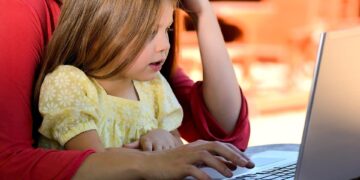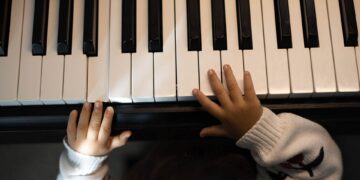Bridging the Gap: Building Stronger Parent-Teacher Partnerships Through Effective Communication
In the world of education, one of the key ingredients for success is a strong partnership between parents and teachers. When parents and teachers work together effectively, students are more likely to thrive academically, socially, and emotionally. However, building and maintaining these partnerships can sometimes be challenging. In this article, we will explore the importance of effective communication in bridging the gap between parents and teachers, and provide practical tips on how to strengthen these partnerships.
The Importance of Parent-Teacher Partnerships
Parent-teacher partnerships are essential for the holistic development of students. When parents and teachers collaborate, they can create a supportive and nurturing environment that fosters academic success and personal growth. Research has shown that students whose parents are actively involved in their education tend to perform better in school, have higher self-esteem, and are more likely to graduate from high school.
In addition to academic benefits, parent-teacher partnerships also contribute to a positive school culture. When parents and teachers work together, they send a powerful message to students that education is a priority and that everyone is invested in their success. This sense of community and shared responsibility can help create a safe and inclusive learning environment where students feel supported and motivated to excel.
Challenges in Building Parent-Teacher Partnerships
Despite the many benefits of parent-teacher partnerships, building and maintaining these relationships can be challenging. Communication barriers, conflicting expectations, and busy schedules are just a few of the obstacles that can hinder effective collaboration between parents and teachers. In order to overcome these challenges, it is essential for both parties to prioritize open and honest communication.
Effective Communication Strategies
Effective communication is the key to building strong parent-teacher partnerships. By keeping the lines of communication open and transparent, parents and teachers can work together to support the academic and emotional needs of students. Here are some practical tips for improving communication between parents and teachers:
- Establish regular communication channels, such as email, phone calls, or parent-teacher conferences.
- Be proactive in sharing information about student progress, behavior, and any concerns that may arise.
- Listen actively to each other’s perspectives and be open to feedback and suggestions.
- Collaborate on goal-setting and action plans to support student learning and development.
By implementing these communication strategies, parents and teachers can build trust, empathy, and mutual respect, which are essential for creating a strong partnership that benefits students.
Addressing Common Questions
Parents and teachers often have questions and concerns about how to effectively communicate and collaborate with each other. Here are some common questions that may arise, along with practical tips for addressing them:
- How can I stay informed about my child’s progress in school?
- Ask your child’s teacher about the best way to receive updates on academic performance, behavior, and any other important information.
- Attend parent-teacher conferences and meetings to discuss your child’s progress and set goals for improvement.
- What should I do if I have concerns about my child’s education?
- Schedule a meeting with your child’s teacher to discuss your concerns and work together on finding solutions.
- Seek support from school counselors, administrators, or other resources if needed.
By addressing these common questions and concerns, parents and teachers can navigate potential communication challenges and strengthen their partnership for the benefit of students.
Conclusion
Building strong parent-teacher partnerships through effective communication is essential for the success and well-being of students. By prioritizing open and honest communication, parents and teachers can create a supportive and nurturing environment that fosters academic achievement, personal growth, and a positive school culture. By implementing practical tips and strategies for improving communication, parents and teachers can bridge the gap and work together to support the holistic development of students. Let’s continue to strengthen these partnerships and create a brighter future for our children.












































